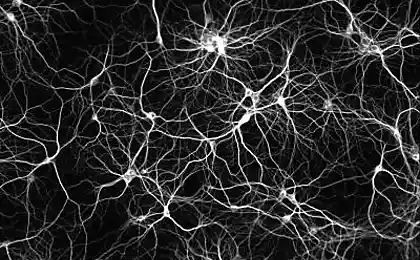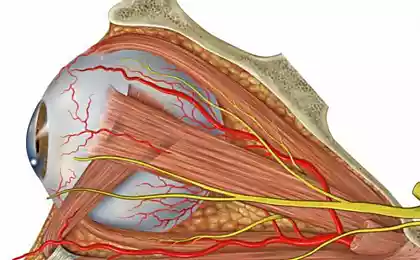712
Memories-flash: how memory works in the difficult moments of history
In the age of television and the Internet, everyone has the chance to join the dramatic historical events. Many of us remember well the days of terrorist attacks, high-profile political murders, the moments of capture and release of the hostages. Experts call this phenomenon "memories-flashes". But is it an accurate picture of the events that we hold? Published a translation of an article of the psychologist, associate Professor, Lafayette College Jane Talarico.
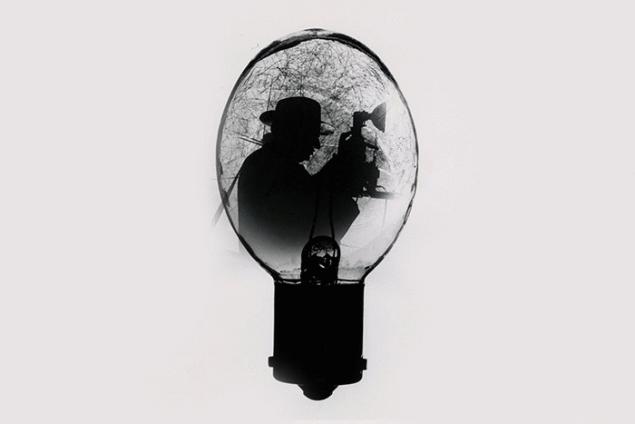
Surprisingly, many Bostonians are incredibly vividly remember the day of the attack that occurred here in 2013 during the marathon run. The new Yorkers also still remember what I was doing on the day of the September 11 attacks. A huge number of people who were not present during the explosions or were not even in Boston on April 15, or in new York in September 2001, is also well remembered under what circumstances he learned what happened. Why those did not affect these events, long retain the ability to tell us where you were and what you were doing when you found out the bad news?
Scientists call this phenomenon "memory-flash". It allows the person to record the experience obtained in the process of interaction with the event, not the actual details of the incident. Remember what happened to us or our loved ones, it can be useful — but in the storage of details related to the news, at first glance, make little sense. So why is familiarity with the texture of major events creates such vivid memories? And how accurate is "the flash"?
Strong feelings and personal connections, Not all historical moments lead to the emergence of such memories. The event is really to draw attention and to be able to obtain the status of an important moment before the facts begin to register. Also to ensure that we were able to demonstrate this phenomenon improve memory, it seems, need personal or socio-cultural connection with the event, which is the basis of strong emotional reactions.
When a person suddenly discovers that his loved ones died, he is also unable to form memories similar to "flash". And yet psychologists are more willing to analyze the reaction to public events — because you can explore so many different memories of a single moment. Often these memories are of different ages, so you can see how they change over time.
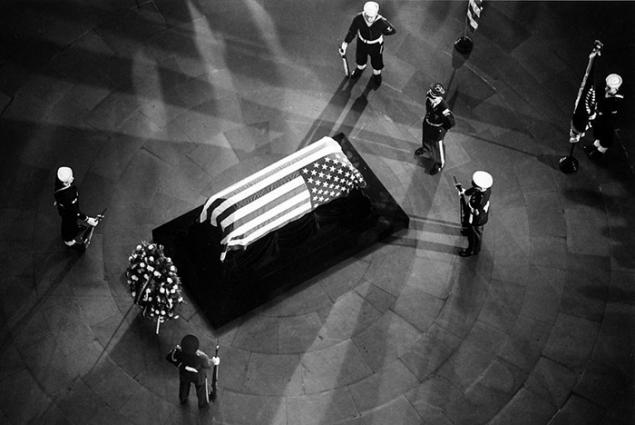
the funeral of John F. Kennedy, © Flip Schulke
Cross-cultural research "flashes" showed that despite the fact that the nature of memories and the type of events remains the same for most people, the perception of historical moments may be different. For example, a study in 1977 in which the term "memory flash" was used for the first time, showed that the dark and light-skinned residents of the United States are equally recorded in the memory of the murder of John Kennedy, but African Americans are twice as likely to remember in the form of "photoflash" the murder of Martin Luther king. Some theorists believe that "the flash" kept so long because they are proof of our membership in a particular social group.
Live details the First scientific psychological literature description memories-the flash was made by Dr. F. W. Colgrove in 1899. In his text on public perception of the assassination of Abraham Lincoln, there are a few notable details:
"Everyone seemed so sad, and the people possessed such a wild excitement that my father stopped his horse and asked in a loud voice: "What, my friends? What happened?". "Haven't you heard? — was the answer. Lincoln killed". The father dropped the reins from his hands, his face flowed with tears, and he stood without movement".
We have known for decades remember the many events of his life, and yet these living fragments of the past emerge before our mind's eye. They can appear after a long delay, sometimes a long lifetime, which also makes them remarkable.
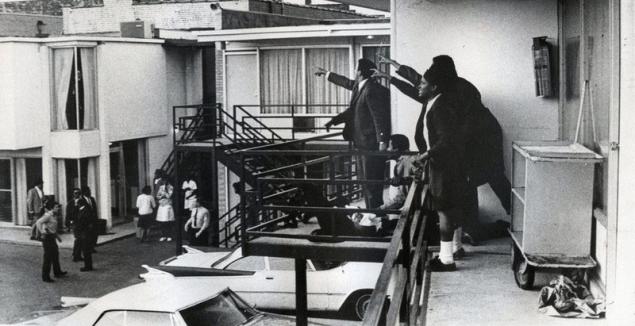
the murder of Martin Luther king
Compared with ordinary autobiographical memories, "flash" involves far more sensory information. Within them you'll be able to recreate a picture of the place and persons clearly hear voices and sounds. Also characteristic of such memories was "idiosyncratic detail", of no value in the overall picture of the events.
The model of the past, We can easily think of many things and therefore think they are a good representation of the event. But in fact, the durability and liveliness of "flashes" a lot more credible than their accuracy. Even when we think we remember where we were and what we were doing, research may show that such confidence is unfounded.

Have you ever argued with a spouse, a brother or sister about what really happened in the time in which you were both present? If Yes, then you know that memories are not a perfect picture of what happened. Psychologists describe them not as a copy but as a model of the past. In the basis of memories is what actually happened, however, at the time of writing they're influenced by thoughts, feelings and reasons for which is something you need to remember.
Incomplete picture of All my memories fade with time, and we may be confused between the details of different events. This also applies to "light". In their case, we are inclined to forgetfulness, and, interestingly, potentially more prone to incorrect memory. We often think and speak of his "flashes" and sometimes adding details from other moments or to include in your picture what is learned from other people. So we turn his "photoflash" in coherent interesting stories.
The media partly contributes to the spread of this phenomenon. Constant repetition is the only available video may cause later you will think that you saw everything live. Media can also push us to think and discuss what happened. This enhances the liveliness of the picture — and our sensitivity.
And yet, despite the presence of subjective feelings of accuracy of memories, as a rule, they are not completely reliable. When people are asked to write what they remember in an objective picture of the fall of the mistakes, gaps and assumptions, the same as in the case of autobiographical memories of the same age. Why are we so confident in his "flashes"? The reason, it seems, is that these memories allows us to demonstrate to themselves and others ideas that we believe are really important.published
P. S. And remember, only by changing their consumption — together we change the world! ©
Source: theoryandpractice.ru
For thrill-seekers. Options extreme relaxation
Ricoh engineers have created electricity-generating elastomer











